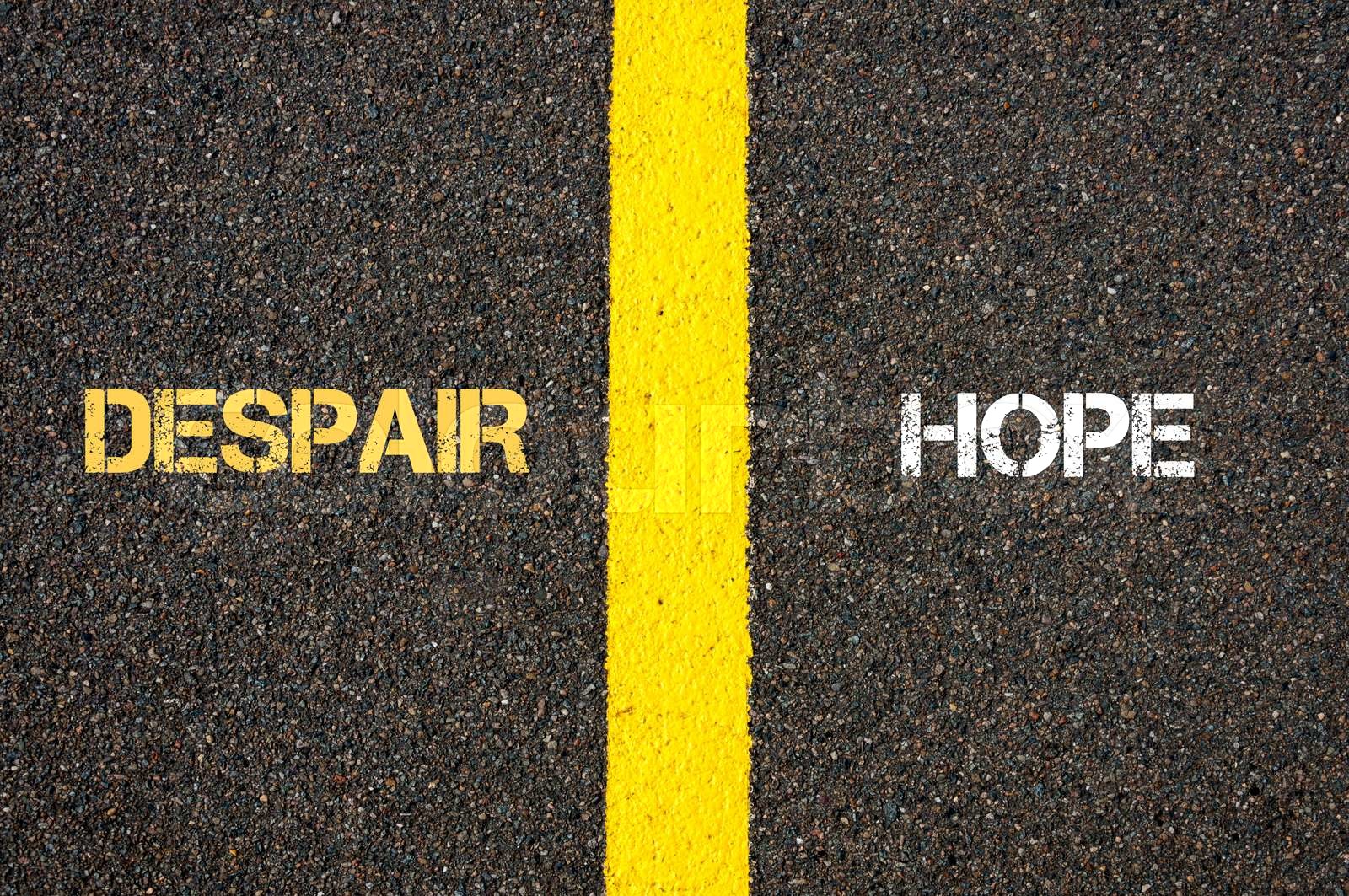The Bahá’í Faith, a religion that emerged in the 19th century, espouses a worldview fundamentally anchored in the concepts of unity and progress. It presents a profound perspective on human existence, encapsulating the interplay between despair and hope. In the context of Bahá’í teachings, the concepts of despair and hope are not merely emotional states; they represent philosophical underpinnings that govern human behavior and societal development. This article delineates the nuances of these concepts, elucidating how they coalesce within the Bahá’í framework and the evidence that supports a hopeful outlook on existence.
At its core, the Bahá’í Faith promulgates that despair is antithetical to the divine purpose of humanity. To comprehend the Bahá’í stance on despair, it is crucial to recognize its roots. Despair often germinates in the soil of materialistic views, where one’s identity and worth are tied to ephemeral achievements or physical circumstance. Bahá’í teachings advocate for a broader, more spiritual interpretation of life. In this paradigm, the ephemeral nature of life does not signify an endpoint but a transition toward a greater reality. Thus, despair arises from a lack of understanding of the eternal significance of human existence.
Conversely, hope emerges as a potent counterforce to despair, reflected in the Bahá’í belief in the limitless potential of the human spirit. Bahá’u’lláh, the founder of the Bahá’í Faith, articulates that hope is an intrinsic attribute of human nature. It is the unwavering belief in the possibility of improvement, both individually and collectively. The teachings assert that regardless of the adversities faced—be they personal, societal, or existential—hope acts as a beacon that illuminates the path of progress. It fosters resilience, propelling individuals to transcend challenges and work toward the betterment of themselves and society.
From a historical perspective, numerous instances within Bahá’í history serve as poignant illustrations of the transformative power of hope. The early Bahá’ís faced severe persecution, yet they emerged determined to disseminate their message of unity and peace. Their stories underscore that hope, often ignited in the most challenging circumstances, has the uncanny ability to cultivate communities of strength and solidarity. The evidence from their experiences suggests that the cultivation of hope can breed resilience and endurance, serving as a catalyst for societal change.
Furthermore, the Bahá’í teachings draw upon a wider metaphysical framework, positing that the human spirit is fundamentally connected to divine realities. This perspective accentuates the importance of spiritual growth, depicting hope as not only an emotional state but as a spiritual imperative. The notion that each individual possesses innate potential underscores the Bahá’í view that despair is a transient condition rather than a permanent state of being. By aligning oneself with divine guidance and engaging in spiritual practices, individuals can overcome feelings of hopelessness, shifting their focus to more constructive endeavors.
In examining the role of community in fostering hope, one finds significant evidence within Bahá’í teachings. The communal aspects of the Bahá’í Faith encourage collective action and collaboration. The principle of consultation, for instance, exemplifies how individuals can come together to share perspectives, resolving conflicts and fostering a sense of belonging. This communal engagement has a twofold effect: it fortifies individual spirits and galvanizes the collective towards a shared vision of progress. The success of Bahá’í communities around the globe serves as a testament to the power of hope as a unifying force, driving transformation on both personal and collective levels.
Moreover, the Bahá’í writings confer practical guidance on nurturing hope amid societal challenges. Stressing the asymmetrical relationship between hope and despair, they encourage individuals to actively seek out avenues for positive change. This is manifested in the emphasis on education and service—central tenets of Bahá’í practice. By fostering selflessness and providing services that uplift society, individuals can create environments where despair is diminished and hope flourishes. Educational efforts geared towards empowerment serve not only to alleviate immediate hardships but also to engender a momentum of hope across generations.
Nevertheless, it is essential to acknowledge that despair, though frequently seen as a barrier, is also a powerful teacher. The Bahá’í perspective suggests that experiencing despair can lead to deeper reflections, prompting individuals to seek out more profound truths about existence. In this manner, despair acquires a transformative quality—encouraging individuals to reevaluate their lives and redirect their energies towards more meaningful pursuits. When despair is interpreted through this lens, it becomes a precursor to personal evolution rather than a conclusion drawn from lifeless circumstances.
In summation, the dichotomy of despair versus hope within Bahá’í teachings is emblematic of a broader philosophical inquiry concerning the human condition. The evidence supports the assertion that hope is a fundamental attribute that enables individuals not only to endure life’s vicissitudes but also to thrive amidst them. By tapping into the spiritual essence of existence, adhering to communal values, and embracing service, humanity can consciously choose to cultivate hope, thereby transforming despair into a catalyst for profound, systemic change. The intertwined narratives of despair and hope ultimately offer an enlightening lens through which to view the human experience, steering individuals towards a more luminous, hopeful future.
